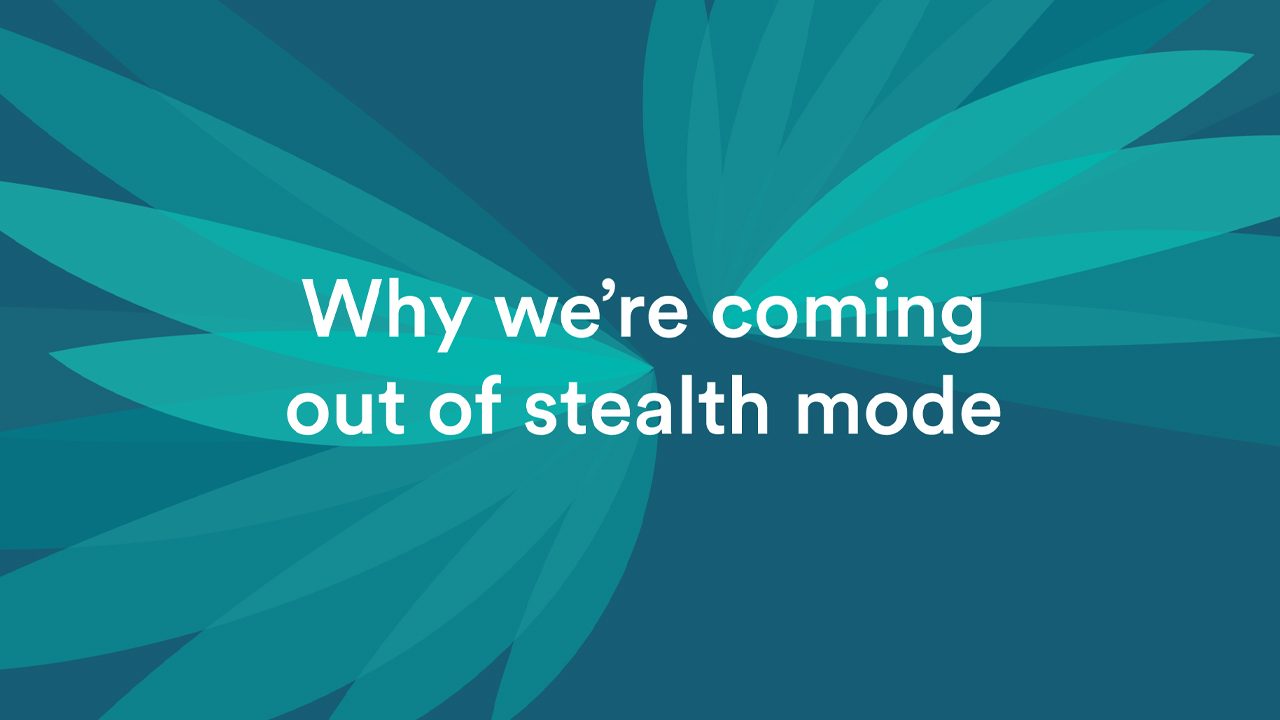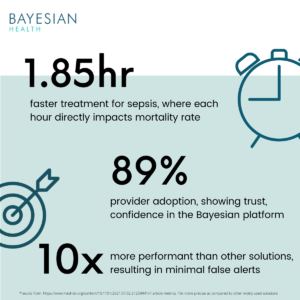Research-Backed AI platform Helping Health Systems Deliver Higher Quality Care
Today, Bayesian Health exited stealth mode, bringing to market its research-backed AI platform that helps health systems deliver safer and higher quality care. But we’ve been at it for much longer—we’ve been heads down, working as a company for more than three years.
Why did we wait so long to launch?
It was important for us to come to market with a research-first and outcome driven approach. There are so many technologies out there that don’t deliver on their promises or haven’t been evaluated to see the true outcome and impact of the tool. AI and machine learning technology and strategies are moving at such a fast pace, and health data are innately messy. To do it right, it requires deep AI expertise to deliver strategies that can successfully analyze this data. But perhaps what’s even harder is what happens after the model is created; even with great models, you still need the solution to be adopted and trusted to realize better outcomes.
Over the past three years, we’ve operationalized decades of leading AI/machine learning research into a software, deployed it, and measured outcomes. And we’re publishing these outcomes and methods for transparency, to inspire confidence and trust amongst physicians, clinicians, care team members and informaticists. It is incredibly important to create tools that not only have great models, but have also earned the trust — and regular use — of those who engage (and will engage) with the platform daily.
Our purposeful deployment process included building, testing, learning, and iterating, in order to create a solution that worked both on the backend and front end. The development process culminated in a two-part, multi-site outcome study validating the platform. We released the first part of the study today.
What did this first study show?
A large, five site study analyzing use and practice impact over two years for Bayesian Health’s sepsis module showed high sensitivity (80%+) with high precision (1 in 3 alerts were provider confirmed). Sepsis is a needle in a haystack problem, so it’s hard to achieve high precision at high sensitivity, and especially harder where you’re also optimizing for earlier detection times. But all three of these things are critical to cracking the code on earlier sepsis recognition and prevention.
Our high quality, timely clinical signals resulted in 1.85 hour faster life-saving patient treatment driven by high provider adoption (89%).
With research showing the average adoption of clinical decision support tools to be low, our high adoption is exciting news, and shows physician confidence and trust in the Bayesian insights, leading to proactive, earlier care. This is great news for patient outcomes, where for sepsis every hour of delayed treatment directly impacts mortality rate.
Based on the achieved sensitivity, precision, and timeliness observed in the study, our platform is able to achieve performance that is 10x more precise than any other widely used tool in the market.
We’re really excited by these results — and for the impact our solution will have on patient outcomes. The second part of the study is being finished right now, and we’re even more excited about what the preliminary results say about mortality and overall length of stay reduction.
What’s next?
We’re going to continue to evaluate our solution as we roll out new modules, and work with more health systems and physicians. Because to us, ensuring that our solution is impacting outcomes for the better, driven by high quality real-time clinical signals as well as the user interface and features that allow for trust-building (such as including context with every clinical signal insight), is of critical importance.
We’re doing it differently, and proud to be one of the first solutions to deliver accurate and actionable clinical signals that physicians and nurses trust and act upon. We’re ready to be in the market, and introduce you to our research-backed AI platform.
We’d love to show you how Bayesian’s AI platform can work at your health system.



